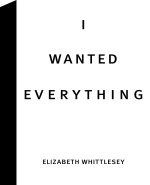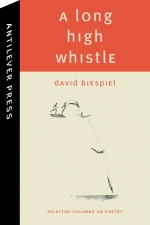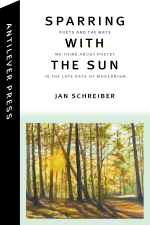Articles

Timothy Donnelly
13 Nov 2018
“It would be easy, accurate, and even comforting to describe I Wanted Everything as yet another book of poetry about desire. Easy because it’s right there in the title.…Comforting because to summarize this wild, capacious new thing as ‘a book of poetry about desire’ is to domesticate it, make it familiar.…But something other than familiar lyric longing is at work in I Wanted Everything, something far more treacherous.…
more »

David Biespiel
29 Dec 2014
“A poet’s greatest fear is that she will flinch....”
more »

David Biespiel
29 Dec 2014
“I believe that most people have little trouble reading a poem, that most people like poetry, that most people crave the pure pleasure of poems, and that most people want a poem that’s not too obvious. Human beings admire mastery. We enjoy hearing an extremely talented musician play difficult music. We love watching an elite athlete—like a world-class diver nailing a high-degree-of-difficulty twisting and somersaulting dive with no more splash than a teardrop....”
more »

Adrian West
16 May 2014
“Years ago, in a conversation about what he considered to be the dispiriting state of Spanish letters, a friend and former professor mentioned a short novel by a Catalan who wrote like Proust. Later, when I had begun to read Catalan, I asked after the book, Fortuny by Pere Gimferrer....”
more »

Jan Schreiber
22 Mar 2013
“The task of any poet, faced with a bombardment of sensory impression, a vast reservoir of recollected experience and images, and the disorderly swirl of feeling that accompanies them, is to select, record, and respond. Poets do so with the means granted not just by their native abilities but also by their moment in history, their relation to language (do they favor abstractions or concrete details, objective or emotional statements?), and their place in the world. With such means, great or small, poets must, in [Elizabeth] Bishop’s words, spar with the sun.”
more »

Rhina P. Espaillat
22 Mar 2013
“Sparring with the Sun may not have neutralized the verbal acids contained in some of my collected rejection slips, but it has succeeded in teaching me something about the chemical processes that produce them in critics and poets alike: temperament, background, life experience, the impact of a given environment, the age, tradition, the need for consensus and ‘reassurance,’ and the countervailing need to reject the accepted and reassuring. More surprising still, this richly instructive book has pointed out ways in which those processes, producing those same acids, were—and maybe forever, in some dosage—essential to the creation of poetry.”
more »
Kit Frick (from Sapling #147)
24 Feb 2013
“Antilever Press is a nonprofit organization founded in 2010 “to discover, publish, and promote excellent contemporary poetry and criticism.” As a relatively new small press on the block, what should people know about Antilever?”
more »

Kit Frick (from Sapling #152)
25 Oct 2012
“Writing gets done in the cracks and crevices, stealing time from one obligation to give to another. In the meantime I cut out all the non-essentials. We eat a lot of take out. I don’t watch much television. I don’t garden. I’m not a great housekeeper. Laundry is done once a month, or less. But I would rather have my daughter than a thousand poems, and I’d rather have a job than starve. Life is messy, which is good, for otherwise there would be no need of poems.”
more »

Rosanna Warren
26 Jul 2012
“[Kalogeris] throws the emphasis away from the personality of the translator, and onto the mysterious, atemporal unity of imagination the pairings propose. The effect is startling, revelatory.”
more »

David Ferry
26 Jul 2012
“George Kalogeris’s translations in this book, all of them, are instances of realization, realization in several senses but mainly in two: making the poem he is translating be realized, made real in the language it’s being translated into, and realizing it not only by bringing it across like a message of its sense from beyond the border, but by his choices of language and syntax and his versification, making the translation a poem made real in the company of other good poems, whether translations or not—a poem of his own.”
more »















